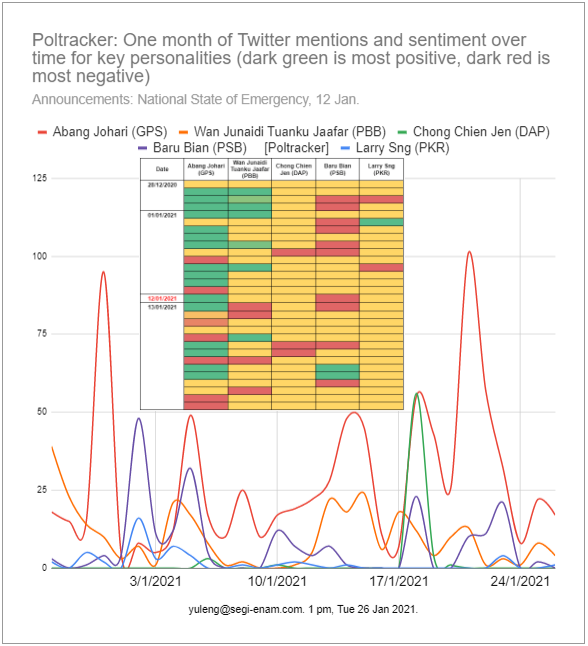Power to the People: The 2021 Myanmar Coup D'état
Note: Chart indicates hashtags in the English language among Myamnar netizens. The coup was on 1 Feb 2021. Facebook was the more popular social media platform in Myanmar before it was blocked, 3 Feb 2021. There was a rapid shift to Twitter and other social media platforms. We explored some popular hashtags on Twitter Myanmar. There are also daily hashtags, e.g. #Feb21coup, #Feb22coup, which helped organize demonstrators, similar to those we observed for the 2020 Thailand protests.
Protests continue in Myanmar. Tens of thousands of civilians flooded Yangon as a sign of protest against the coup, with several unfortunate deaths reported. Internet access was later restricted and popular social media platforms, including Facebook, Twitter, and Instagram, were blocked—ironically, the Myanmar military itself was just banned from Facebook and Instagram, with Facebook believing that “the risks of allowing the Tatmadaw (Myanmar army) on Facebook and Instagram are too great.”
The current situation in Myanmar adds to ongoing political upheavals within ASEAN bloc countries. Special powers have been used in several countries, including Cambodia, Thailand and also in Malaysia (with an Emergency) most recently. Several ASEAN countries, including Vietnam, Laos, and Brunei, do not have general elections at present. Singapore and Indonesia face rising online discourse, questioning ruling elites and political oligarchies. The Philippines has more than its share of those, while strongman outsiders have gained public support.
How will the Myanmar coup and protests (and those in Thailand ) affect the region as a whole? And how the coup will end is anyone’s guess, at least for the moment.
We spoke to a Myanmar insider on 24 Feb 2021 (the excitement of this source was palpable and infectious): “55 million are protesting here. We’ve had a general strike for 20 days now. You need cash to buy things. The banks aren’t open and the civil servants are out protesting too.
It has been amazing, and the young have been amazing. Its Thai sim cards and VPNs to beat the blocks. One day, all the vehicles on the road stopped (in protest). Amazing coordination for this. Donors are providing food and water to the protestors. The military said that they have 10 million votes missing, so where are their 10 million supporters? “
Unfortunately 9 people have died; but that seems few for such massive protests. The neighbourhood groups have been watching out for the prisoners released by the military coup leaders to help them bust the protests. I’m not sure if the coup leaders were inspired by Trump’s storming of the Capitol or what. But they’re getting some blowback as there are sanctions/asset freezes catching the retired generals and their wider families; a bigger group is now affected than just a very few under such strictures in the past.“
Check out our graph above of key hashtag tweets, that reaches to a million and more daily on peaks. By comparison, during the Thailand protest period of October 2020, we observed the daily counts for key protest hashtags tweets could reach up to about a million day. In contrast, the Malaysia Emergency announcement period in January 2021 saw limited activity. There, major protest hashtag tweets peaked at under three thousand a day.
By the PolTracker team, 25 Feb 2021
Notes:
a) Populations. Malaysia c. 32 million, Myanmar c. 54 million, Thailand c. 69 million.
b) On sources and language: Hashtag tweets reviewed were in English for Myanmar (and Thailand) where they outnumber local language hashtags. On the protest news front there, our sources point out there is much more in the local language than in English.







